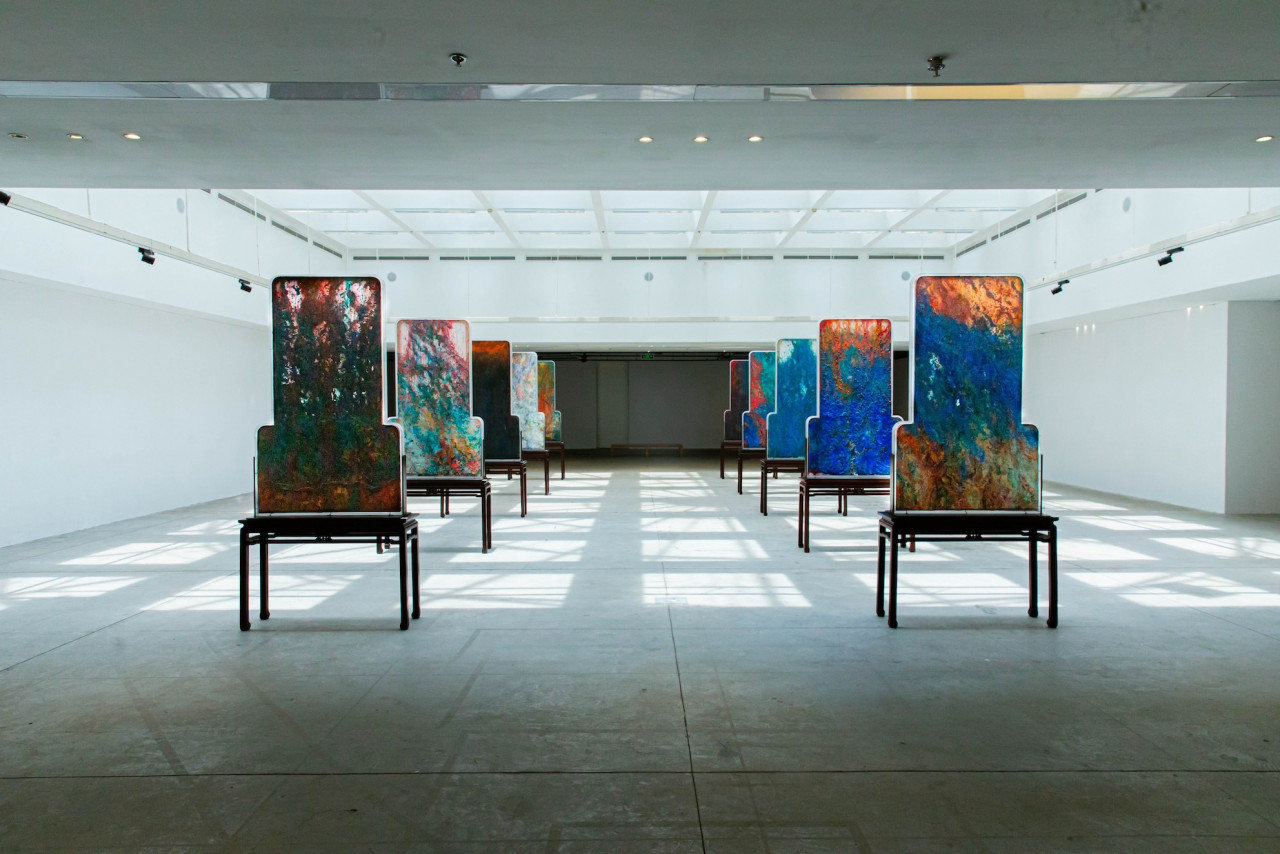Life is but an overwhelming dream,
Why then should we make it difficult?*
(處世若大夢,
胡為勞其生?)
Throughout the almost 4000-year length of East Asian art history, landscape has always been present as a part of daily life, featured on household objects, starting from the Shang and Zhou dynasties, to the Han and its feudal successions in China. Landscape was found not only carved on the walls of stone caves, but also depicted on silk paintings, murals, inside temples, as well as in calligraphy in the later periods. This goes to say that, in addition to the function of depicting places, daily life, and the majestic vastness of nature, landscape also expresses the perspective of our predecessors about life and humanity; it is where they harbor and safeguard their inner thoughts that might be difficult to put into words. Ethereal Scapes is a collective of my works that explore the theme of landscape over the last five years. I carried out research about the history of East Asian landscape paintings since its conception, and the process of its continued development and transformation. My personal focus is on finding a way of seeing landscape art, situated in a historico-cultural context. I began to develop my observation of formal changes in landscape, starting with the symbols and sites found along the three regions of Vietnam in my first landscape series ;Vietnam’s Landscapes (2010- 2014). Afterward, I continued with a series that expresses the spirit of a landscape, titled The Circle of (2016- 2021) and two smaller-sized series (both titled “The Reflections”) where I extended this theme further. Since 2016, my angle on landscape slowly outgrew its initial inspirations. I started to minimize the actual depiction of landscapes and ornamental patterns, usually found on traditional diptychs; instead, I began clearing the path toward the visuo-spatial exploration in the context of traditional poetry. I combed away the details, signals, or
characteristics that help identify a landscape in its original state. This process led me to a journey into abstraction in my view on landscape.
During my search, thanks to my hobby of reading Tang poetry, I came to recognize the elements of space and visuals in Chinese classical poetry (gushi) as a source of inspiration that helps me clearly appreciate the concept of atemporality. Gushi taught me how to experience the endlessness and permeability of space. It invokes a mysterious and delicate beauty, which remains few and far between, through the fascinating conveying ability of words and images in gushi. These characteristics render
it akin to painting. The process of abstraction in landscape painting, based partially on the inspirations from gushi, has helped me expand my visual boundaries, the dimensions of space, stretching to eternity, and towards a diversity of expression means. This brings my works closer to the state of freedom and wholeness in gushi.
Landscape is the life that we live in, transpiring and fading in front of our eyes. Yet, life is also a long dream with many scenes that alternate between landscape/dream - real/unreal. Landscape appears in each moment, each hour, each day that passes by. Our life, which is today’s great dream, can also be found in the landscape of days that come later.
Through the works in Ethereal Scapes, with my personal conviction, I always believe that art is a way for me to connect history, time, and memories. Art, to me, can help us cross through each layer of time and space, of different landscapes, in order to see and reflect on ourselves. Somewhere along the line, we will realize that we are but a single grain of sand, waning in comparison to this majestic universe.
Hà Mạnh Thắng
Hà Nội, 23/06/2023
● The two opening verses of the poem, Self-declaration through drinking on a day
in Spring” (春日醉起言志) by Li Bai (李白) (701 - 762), a poet who lives in the Tang Dynasty, China.

